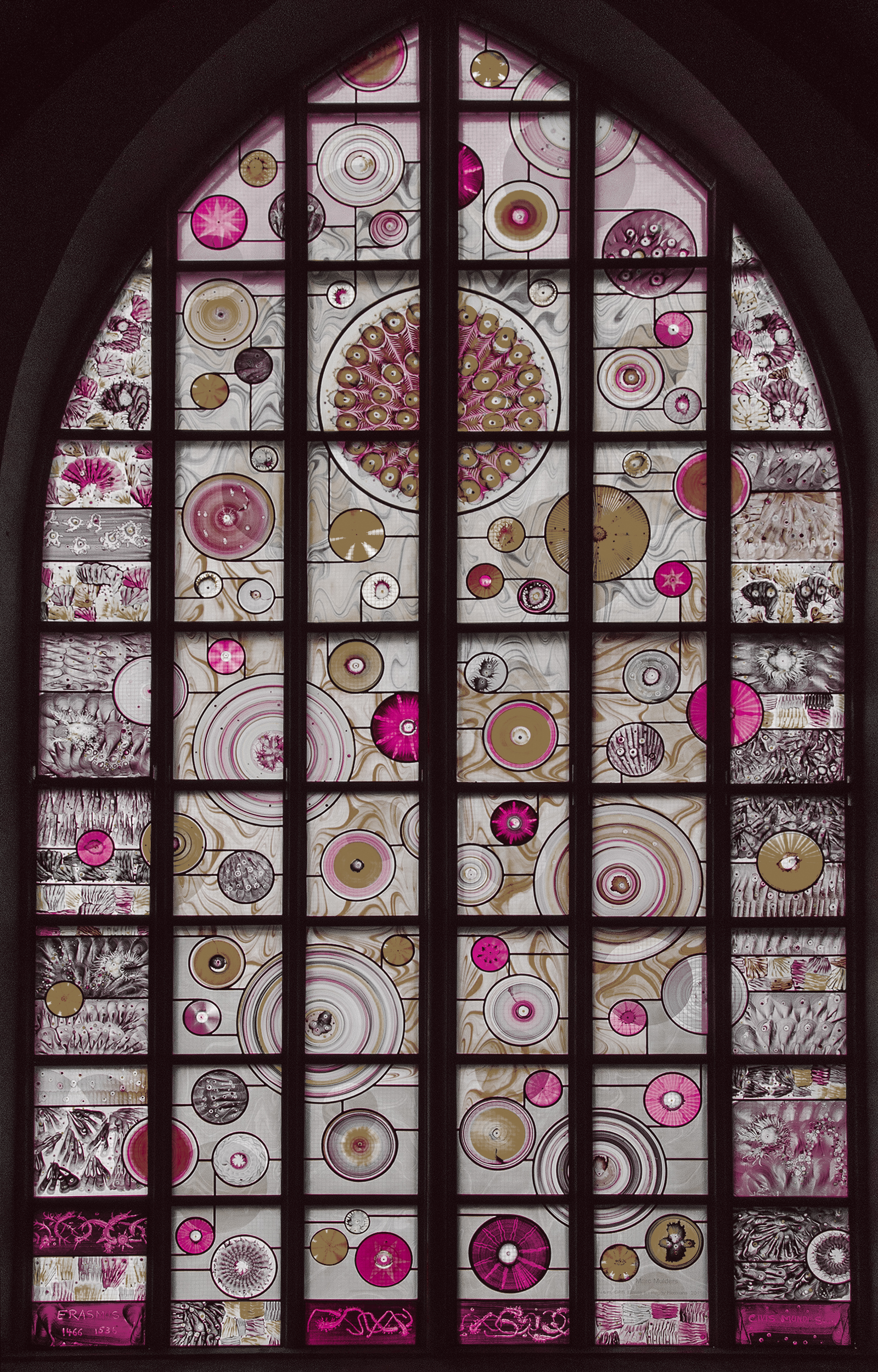
International Conference Contesting in the Name of Religion in Secularised Societies: Between Doctrine and Militancy
Contemporary European countries and societies have been experiencing a lengthy process of secularisation. This process may be understood as a “decline of religious hegemony” and an “exit from religion” or more generally as a weakening of the influence of normative religious frameworks and their attendant practices. At the same time, some religions have also increased their visibility in the public sphere: this is the case with Islam, often presented as a “public problem” and whose institutionalisation is still greatly debated. The public visibility of religiosity is also visible for Catholicism, which has shown a strong tendency to mobilisation based on a sense of identity and growing dynamism in several countries. This situation raises questions about a possible crisis in secularisation and about the putative neutrality of the public sphere and institutions. More precisely, it leads us to assess the scope of these developments in relation to the requirements of democratic citizenship, as the basis of the common public space. “Contesting in the Name of Religion” will consider various aspects of the relationship between religion and politics, such as individual requests for exemption from specific activities; collective struggles for legal recognition through the inclusion of a clause of conscience during the drafting of laws; and phenomena of disobedience of state legal measures. This international conference involving academic partners from Europe and North America also aims to be a training ground for young researchers, who will be invited to make specific studies of political ethics and citizenship.
Download the program
FILL THE FORM BELOW TO JOIN THE CONFERENCE
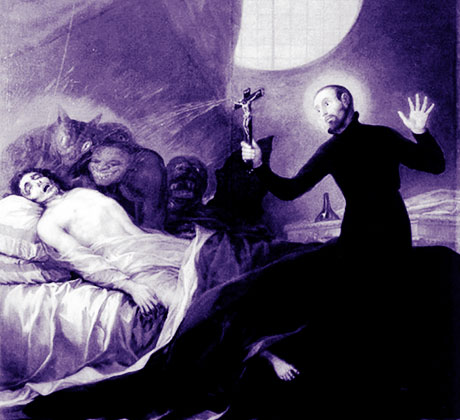
In the 20th and 21st centuries, theories of secularisation described the decline of religious practices in estern societies. Many intellectuals theorised the end of exorcistic practices in the face of an increasingly rational society. Based on the assumption of inexorable rational progress, this vision, however, can’t fully account for the dynamics of the societies we live in. Religion, far from being marginalised by modernity, is increasingly at the centre of political, spiritual and ethical debates.
Consequently, the practices linked to exorcisms are not considered to be an expression of a distant dark past but are the focus of renewed interest and, not surprisingly, in Italy the number of people who turn to exorcists is growing. This requires further research into the topic, with particular attention to trans-cultural approaches, which enable us not only to grasp global trends, such as medical issues and their relation to religious phenomena, but also to provide vivid descriptions of subjective experiences.
The Fondazione Giorgio Cini is the ideal setting for this conference because of the comparative approach that the Foundation has always pursued and for the history of the Island of San Giorgio. The international conference on “Embodying Scientific Medicine and Religious Healing” aims to explore the relationships between exorcisms and scientific medical care in different religious contexts. The conference has been organised by the Fondazione Giorgio Cini Centre for Comparative Studies of Civilisations and Spiritualities, in collaboration with Andrea De Antoni from Ritsumeikan University, Kyoto.
Modified Final Programme – Embodying Modern “Scientific” Medicine and “Religious-Spiritual” Healing – 4 dic
Sign up for the conference
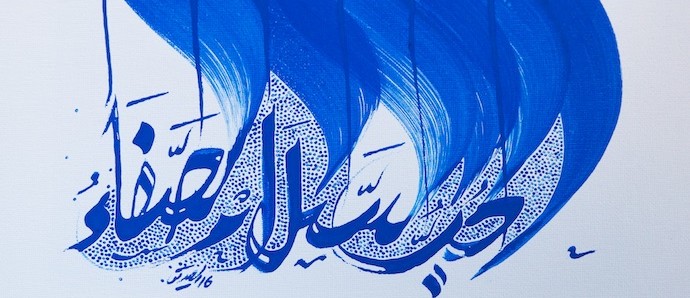
In the Islamic world, calligraphy is the main medium of visual aesthetic expression and is both transcultural and transdisciplinary. It is transcultural, because the various calligraphic styles have been influenced by different cultural contexts, although there is also a certain continuity, especially as regards religious calligraphy. And it is transdisciplinary because it concerns not only the strictly religious dimension, but also the visual arts and poetry. In this workshop, addressed to Ca’ Foscari students of Arabic and all visual arts enthusiasts, the Fondazione Cini Centre for Comparative Studies of Civilisations and Spiritualities aims to explore the complexity and beauty of Islamic calligraphy.
Ida Zilio-Grandi (Ca’ Foscari University) will provide the historical and theoretical background to calligraphy in the Islamic world, linking up theological and philological aspects. Andrea Brigaglia (Cape Town University) will discuss calligraphy in Sub-Saharan Africa, especially in Nigeria, one of the richest but little known historical and artistic contexts. For the occasion, the Fondazione Cini will commission a handwritten Koran from the Nigerian calligrapher Ka’ana Umar. The art of Nigerian calligraphy has been the subject of violent attacks by the Boko Haram jihadist movement, responsible for the deaths of thousands of innocent people. These victims have not only been the members of non-Muslim religions but also of traditional Islam, such as religious leaders and the Sufi confraternities.
Ka’ana Umar had to flee to save his life, but he continues his work as a refugee in exile. And, lastly, Aymon Kreil (Ghent University) will focus on his anthropological research into calligraphy in contemporary Egypt.
The workshop will be led by Sadik Haddari, a Moroccan artist, well-versed in classical forms of calligraphy, but also capable of blending various styles, to produce writing verging on the languages of figurative art. Sadik Haddari will explain the basic notions of calligraphy and help members of the audience to try their own hand (sheets and ink will be provided). The event will end with a performance by the artist.
Download Programme Islamic Calligraphy
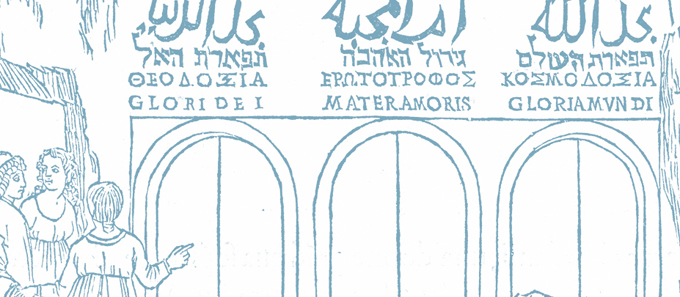
Over the last few decades, the study of Western esotericism has increasingly become a recognised subject in the academic world, thanks to the work of renowned historians, such as Antoine Faivre and Wouter Hanegraaff. In the 20th century, some scholars began to study the connections between Christian, Islamic and Jewish esotericism, but much remains to be explored. This conference will look both in present and past contexts. It will help us to understand to what extent the category of esotericism can be used in other religious
and cultural contexts and will enable us to address the esoteric-spiritual dimension within each religion. The conference has been organised in collaboration with Dilek Sarmis and Mark Sedgwick. Dilek Sarmis is a researcher at the Center d’Études Turques, Ottomanes, Balkaniques et Centrasiatiques (CETOBaC – EHESS), Paris, and Mark Sedgwick is a professor at the University of Aarhus and a founder of the European
Network for the Study of Islam and Esotericism (ENSIE). This will be the inaugural conference of the new network.
ENSIE conference final program
Subscription is mandatory, in order to attend [vfb id=12]

Organised in collaboration with Professor Ida Zilio-Grandi (Ca’ Foscari University, Venice), the seminar sets out to make a thorough survey of Islamic ethics and morality. It will specifically tackle the delicate issue of H. udūd (literally limitations, restrictions, or definitions), which is most commonly used to indicate crimes against religion and whose punishment is already decreed by the sacred texts with no room for human discretion.
The topic will be approached from various points of view: Deborah Scolart (University of Tor Vergata, Rome) will address legal aspects; Olga Lizzini (Vrije Universiteit Amsterdam) will deal with the philosophical side; Ida Zilio-Grandi will look at the moral dimension; Antonella Ghersetti (Ca’ Foscari) will explore the issue in the literary world; Francesca Ersilia (L’Orientale, Naples) will consider it in relation to the socio-economic context; Caterina Bori (University di Bologna) will look at historical-political aspects; Roberta Ricucci (Università di Torino) the sociological aspects, and, lastly, Samuela Pagani (University of Salento) will frame the question within Sufism.
Download the programSeminario Etica Islamica CINI 2018
Subscription Form
[vfb id=7]
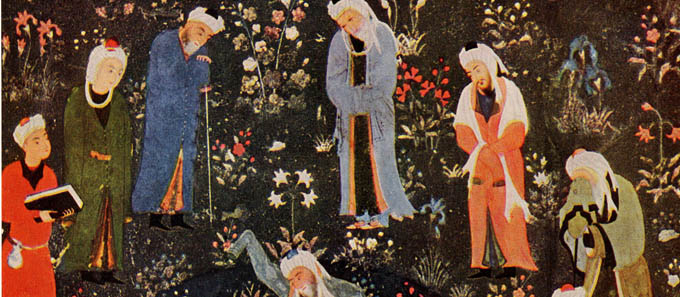
Sufism, a path of spiritual, mystic and esoteric purification in the Islamic world, has played a central role in the history of Islam as regards its artistic, philosophical, ethical and political developments.
In the Modern age, Sufism suffered a twofold attack: on one hand from “Islamic reformists” (Salafi and Wahabi), who consider Sufism to be a form of innovation and syncretism and, on the other, from “Modernists”, who see it as an archaic religious manifestation. Nonetheless, Sufism in the contemporary world shows great vitality: new brotherhoods have been founded and existing ones have acquired renewed energy. This revival of contemporary Sufism deserves further study, and that is why the Fondazione Giorgio Cini, with Francesco Piraino, director of the Centre for Comparative Studies of Civilisations and Spiritualities, in collaboration with Mark Sedgwick (University of Aarhus) decided to organize this international conference.
The themes to be addressed are: the new theological forms of Sufi, with a special focus on the relationship with the Other; policies of Sufism; and its cultural and religious influence on society. A second objective of the conference is to introduce some topics of Sufism and Islam to a wider audience. For this purpose, one of the invited speakers is Khaled Bentounes. A Sufi master in the Alawiyya brotherhood, he will deal with the relationship between Islam and Sufism.
Program Sufism Cini 2017
Subscription is mandatory, in order to attend [vfb id=5]
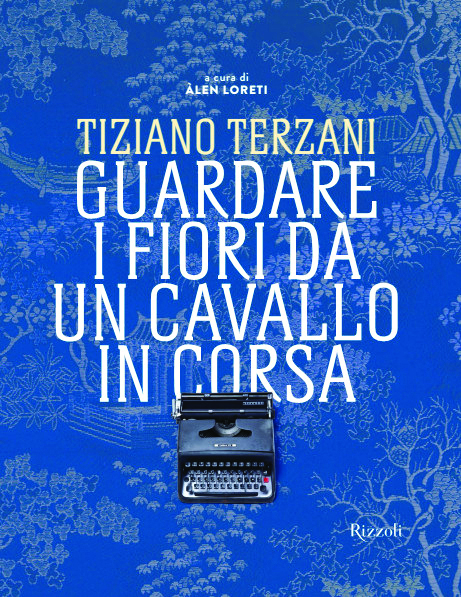
Tiziano Terzani. Guardare i fiori da un cavallo in corsa
Edited by àlen Loreti
Rizzoli, Milan, 2014
Edited by Àlen Loreti and published by Rizzoli, this illustrated book provides an intimate portrait of the great Italian journalist, who died ten years ago, based on his personal documents preserved in the Fondazione Giorgio Cini. In fact Terzani’s library, the books that stimulated his thinking and travels, his personal archive, letters, some objects and photographs were presented by the Terzani family to the Fondazione Giorgio Cini in 2012. Opening those books and browsing through his notes enables us to grasp his moods and to describe his world through his own words, images and memories of a lifetime. Starting from the proceedings at the conference entitled “Tiziano Terzani: portrait of a connoisseur”, held at the Fondazione Giorgio Cini in May 2012, the book recounts his restless, insatiable curiosity and yearning for freedom. It is enhanced by various personal accounts and contributions concerning the man, writer, photographer and enthusiast of Asian culture and spirituality, including a text by his wife, Angela Staude.
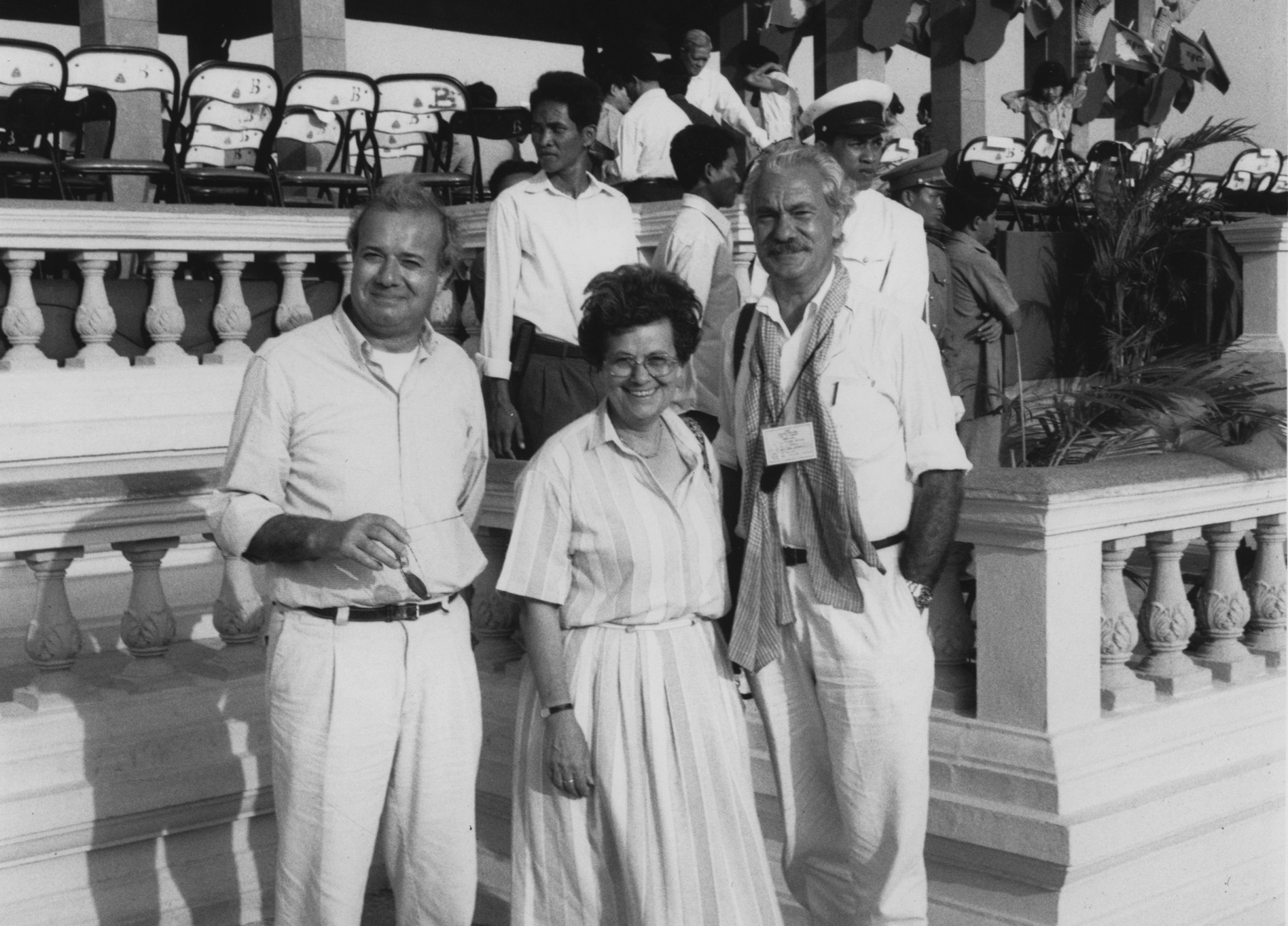
Intended to complement the reflections on Cambodia, the photographic show installed in the exhibition spaces of the Manica Lunga Library – In Cambogia. Photographs from the Tiziano Terzani Archive – is curated by Angela Staude Terzani. The exhibition features the photographs taken by her husband Tiziano Terzani on a trip to Cambodia in 1980. The exhibition will run from 9 May to 2 June 2014. The photos provide a vision of the country between destruction and reconstruction, just as Onesta Carpenè must have seen it in those same years. The main focus is on Cambodia in the early 1980s, immediately after the end of the Khmer Rouge regime, when the country was still devastated by civil war and the liberating-occupying Vietnamese army. Most of the photos are previously unpublished. They have been selected from the Terzani Archive, now being installed in the Giorgio Cini Foundation, which in 2012 already received Terzani’s private library.







